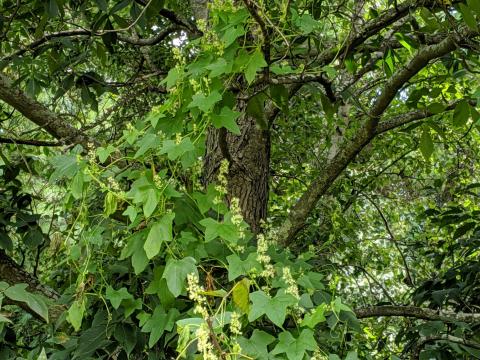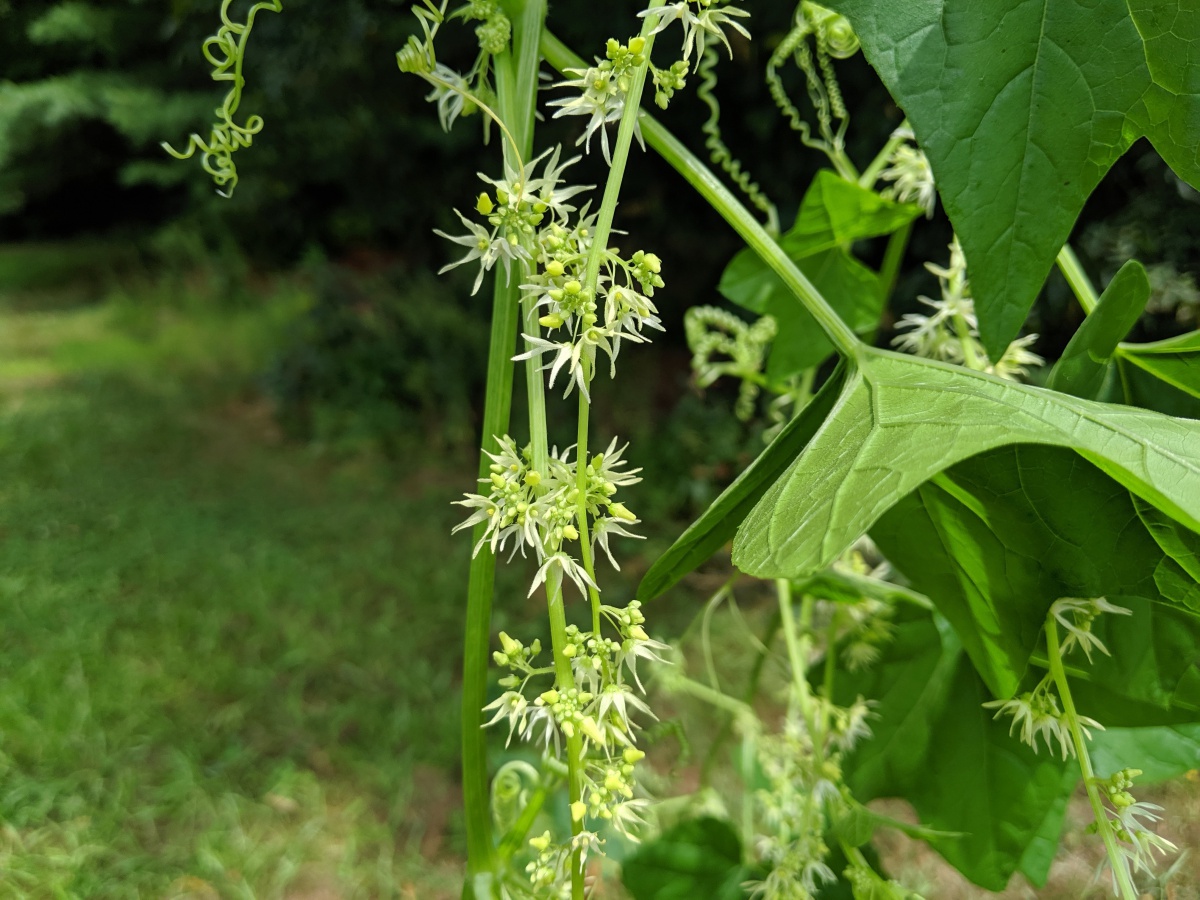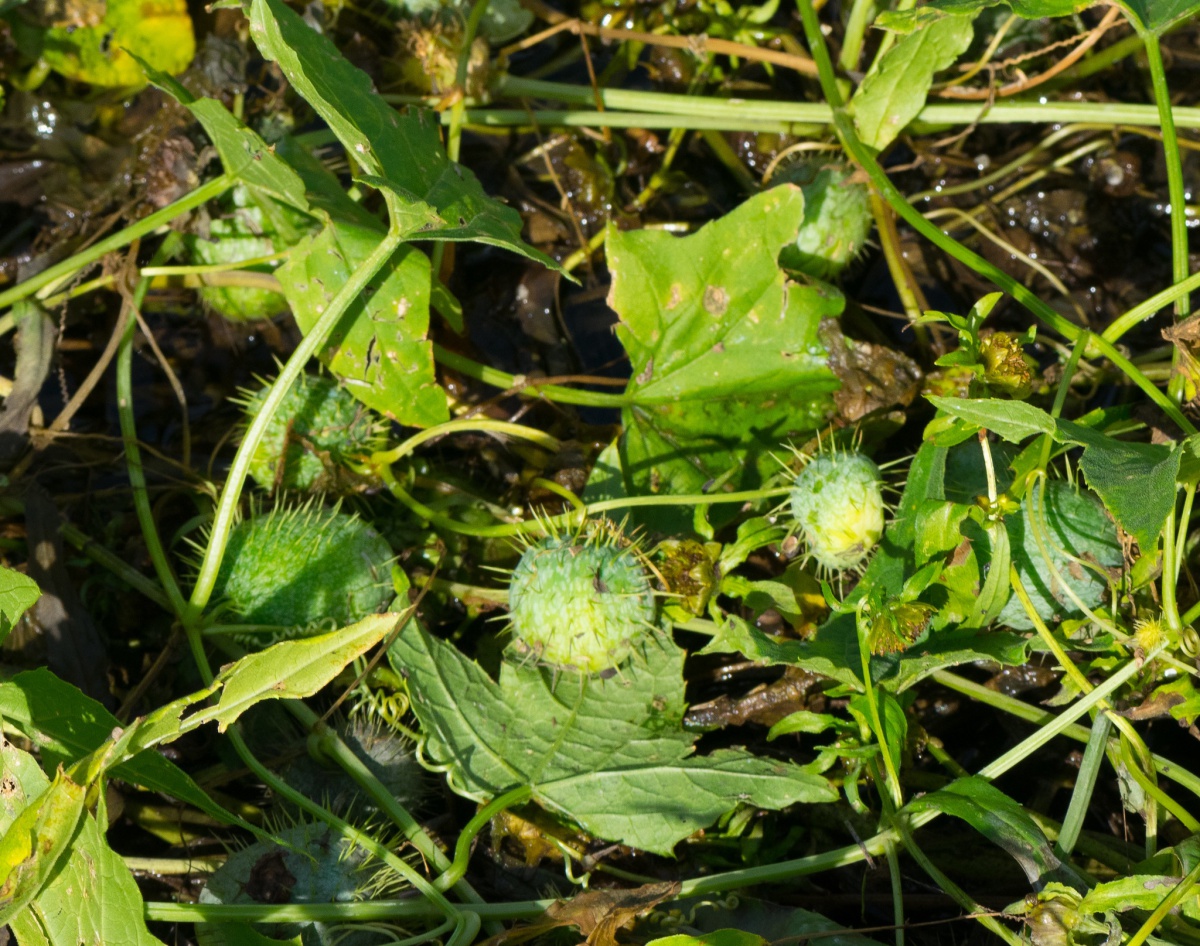Wild cucumber: a frequently misidentified native vine

If you notice a vine which seems to spring up overnight, climbing shrubs and trees, the first inclination is to suspect an invasive species. But looking closely, it may actually be wild cucumber (Echinocystis lobata), a native annual vine in the cucurbit family. While not an invasive, it certainly does grow aggressively!
The vines may grow 25 feet or more in their single season. In this behavior it resembles the highly-invasive Mile-a-Minute vine (Polygonum perfoliatum), but the latter’s triangular leaves are easily distinguishable from wild cucumber’s squash-like palmate leaves. The vines send out robust three-pronged tendrils.
Flowers form in July - August. They are star-like, pale yellow-white, fragrant, and insect-pollinated. Both male and female flowers form on the same plant.

The inedible fruit look like small, spiny cucumbers. Four large seeds are borne in two pithy chambers within each fruit. The pods explode when ripe, forcibly ejecting the seeds.

Many people consider wild cucumber a nuisance, yet some cultivate it as an ornamental, especially to cover fences or arbors.
Enjoy this interesting plant if you don't mind where it's growing, but keep in mind it will self-sow and spread. If you don't like where it is, control is safest by pulling by hand. But take care if you value the plant under it, as wild cucumber's tough tendrils can tear the host plant's stems when forcibly pulled. Chemical control is rarely necessary for the home gardener, and could be damaging to the host plant growing beneath. Another option is to remove and dispose of the fruits well before they ripen to prevent further spread.
Note: plants in the Marah genus may also be called wild cucumber, but they are perennial and native to the Western United States. The bur cucumber (Sicyos angulatus) can be found in the northeast, and superficially resembles Echinocystis, but the leaves are only shallowly indented and the fruits very small.
University of Wisconsin feature on wild cucumber
UNH Cooperative Extension Master Gardener volunteers share information about home, yard, and garden topics with the people of New Hampshire. Got questions? Master Gardeners provide practical help finding answers to your questions through the Ask UNH Extension Infoline. Call toll free at 1-877-398-4769, Monday to Friday, 9 a.m. to 2 p.m., or e-mail us at answers@unh.edu.
Do you love learning about stuff like this?
SUBSCRIBE TO Granite State Gardening newsletter
Got questions? The UNH Extension Yard and Garden Infoline offers practical help finding answers for your yard and garden questions.
Call toll free at 1-877-398-4769, Monday to Friday, 9 a.m. to 2 p.m., or fill out webform.

